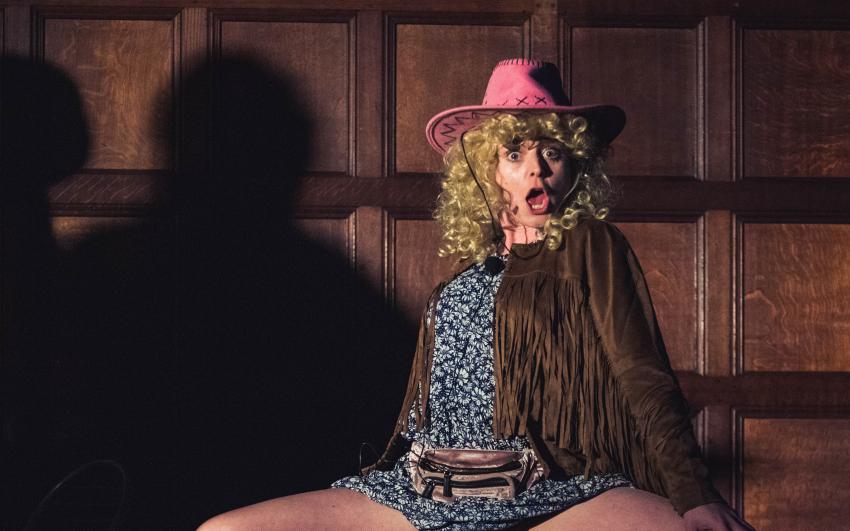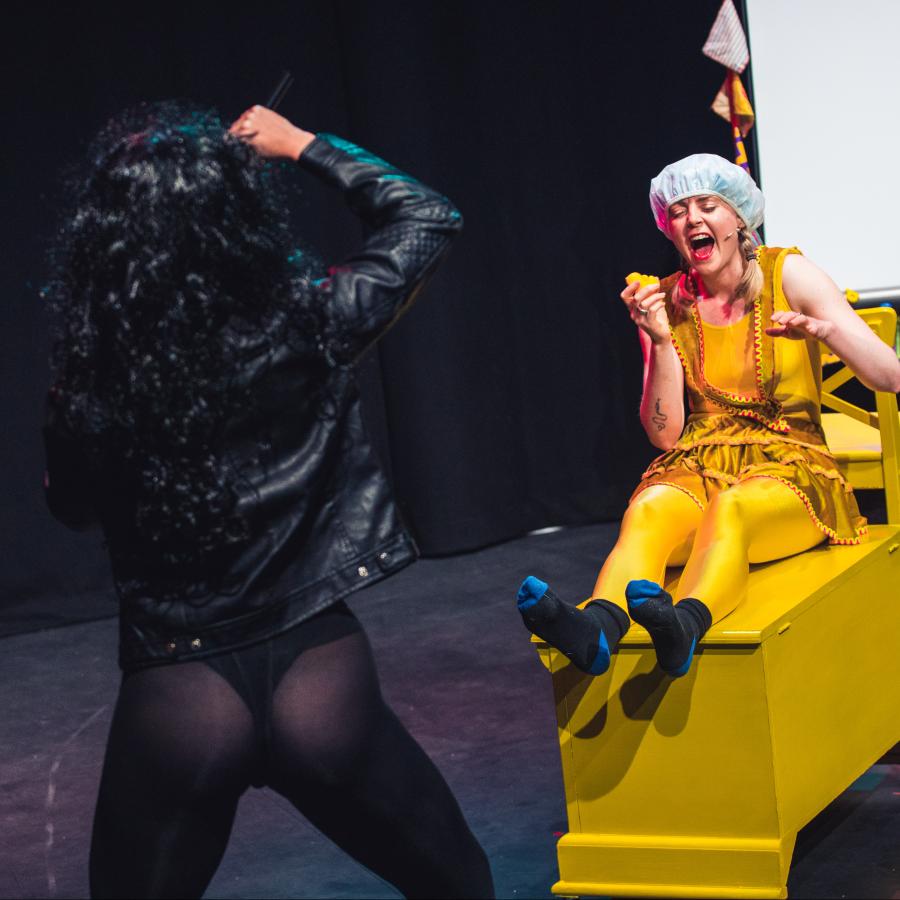"As a queer Neurodivergent, working class artist I felt there was room for me as currently working class people make up roughly 8% of the creative industry and this needs to change!"
Dora Colquhoun, creator of ADHD The Musical, shares her advice on how to get a show off the ground when you have a vision but no idea how the hell you're going to pay for it.
ADHD The Musical is a project that has been in development over 3 years. It has involved many creatives, blood, sweat and tears! Not in equal measure.
The project started because I had a vision to create a show about being diagnosed with ADHD.
What I knew: It was a musical with Cher, Dolly Parton, Julie Andrews and neuroscience.
What I didn’t know: How the hell I was going to make it and how I was going to pay for it!
When getting a project off the ground with little to no funds you have to be a tenacious pitbull scratching at every door saying "I want to do this, how can you help me?".
I knew my project was in the realm of disability arts so I contacted a local disability arts organisation in Liverpool and sent them about 15 emails asking for support to get the project going. I conveyed passion, determination and wasn’t far off getting a restraining order! This is unfortunately the nature of the beast; you have to contact organisations sometimes multiple times and be a spokesperson for yourself. You are an advocate for your creativity and you need to believe you deserve to take up space. As a queer Neurodivergent (ND), working class (WC) artist I felt there was room for me as currently WC people make up roughly 8% of the creative industry and this needs to change!
Disability arts organisation DaDaFest agreed to support me writing an Arts Council England (ACE) funding application for research & development. I had support because I have ADHD and ACE will help you write an application if you have access needs. If you've got access needs and want to apply for funding, I advise you look into this option.
I Googled "neuroscientist" and emailed the wonderful Professor Joydeep Bhattacharya from Goldsmiths who agreed to write a letter of support for my application. I was very lucky that I got a response within 15 minutes of my email and had this fantastic collaborator on the project.
I asked the local church hall if I could use spaces at less busy times at a subsidised rate.
I contacted more established artists, who had successfully gone through the funding process, for advice and many of them shared their successful ACE bids with me.
In the early stages of the ADHD The Musical project, I also borrowed technical equipment from a more established theatre company.
I identified artists in my community and asked for support on how to get the project off the ground, some offering support in kind as an outside eye.
When it comes to collaborators, I was very lucky to have a fantastic director, music director and producer in my community that I could work with. Where I live in Liverpool you can’t swing your arm without hitting a creative!
I have top 5 tips that might help when starting a project
Identify aspirational artists/theatre companies
Find artists/companies who you admire and who are career-wise where you would like your work to be. Email them and ask them advice about your project. They might be up for a coffee, or already be running a masterclass/workshop you can attend, or email back some advice. What’s the worst that can happen? I recently Tweeted Cher, Dave Grohl and Dolly Parton inviting them to attend the show and no one got back to me. One must assume they are busy.
Don't put limitations on yourself and your creativity
Collaboration is key to this. If you want to work with film but don’t know how, find a film-maker. I desperately wanted ADHD The Musical to have neuroscience in it. I have D in GCSE science! I managed to find a neuroscientist collaborator who had the skills and the knowledge for the project.
Identify who has money/resources
Is your project is connected to a theme which could help get support? ADHD the Musical paired up with the ADHD Foundation and they attend the show's Q&As with fantastic resources for our audiences. Cross-disciplinary work means reaching broader audiences whilst also being unique. Collaborating with non arts organisations can be a fantastic way to reach wider audiences and access a wealth of information that an organisation has already worked hard to cultivate.
Ask peers/mentors for help
If someone is a few steps ahead in their career, most people will be willing to help if they can. They were probably helped along the way and lots of people have a ‘Pay it Forward’ mentality. Think about how you would respond if someone got in touch with you asking for help? Most people are pretty likely to say yes if they have capacity!
Apply for opportunities/callouts and see what happens!
I know applications are time/energy consuming but put yourself in the running! I applied for Sprint 2022 and took ADHD The Musical to Camden Peoples Theatre for 1 show. And now the team are back for 10 dates!
And finally: don’t be afraid to fail, baby.
Unfortunately, failure is a huge part of the creative process and the biggest way to learn. Scroll down for a picture of Cher visiting me in the bath in my hour of need to tell me I am enough - and so are you!
ADHD The Musical: Can I Have Your Attention Please? | 17 - 28 Oct 2023 | £8 - £15
Get 25% off when you book more than one show in CPT's Autumn/Winter season.

